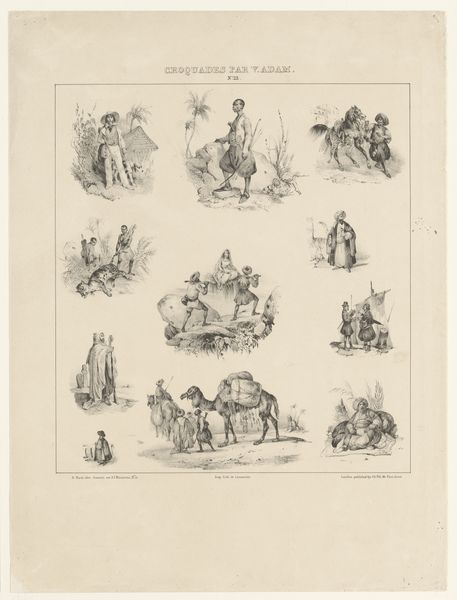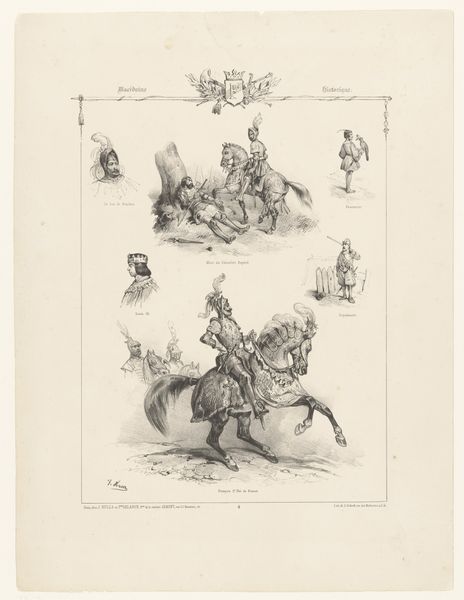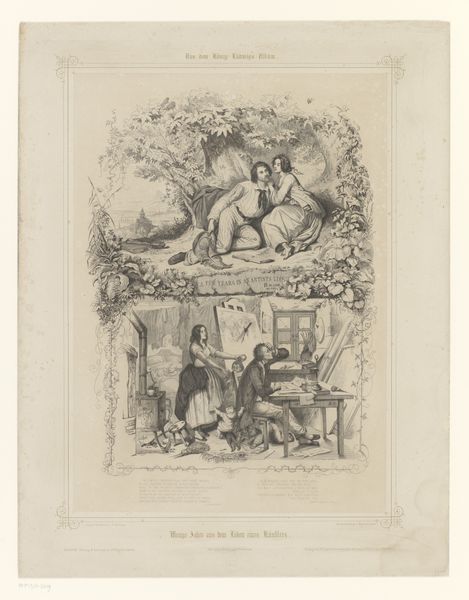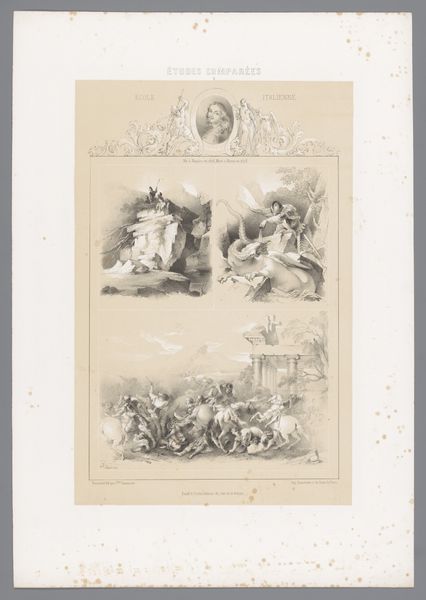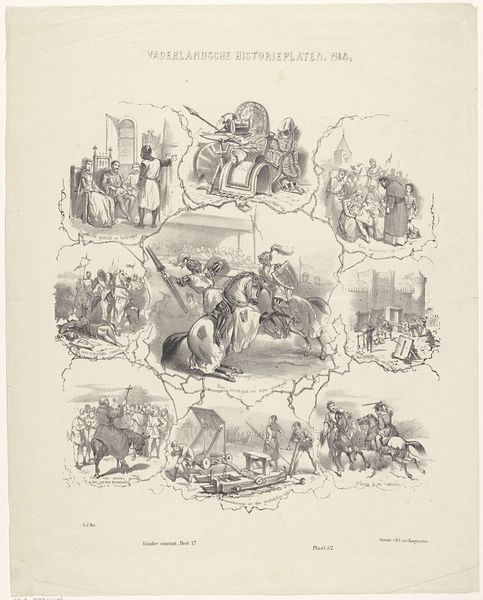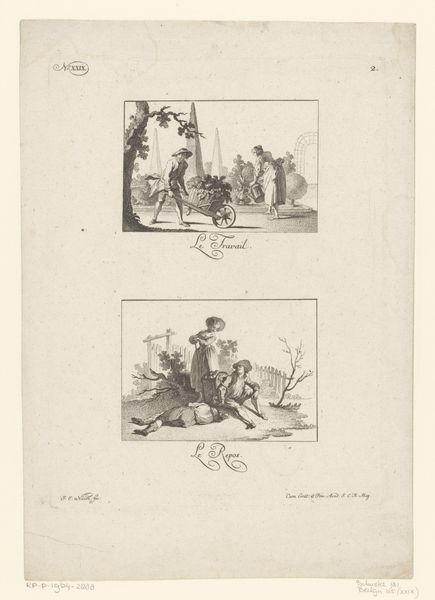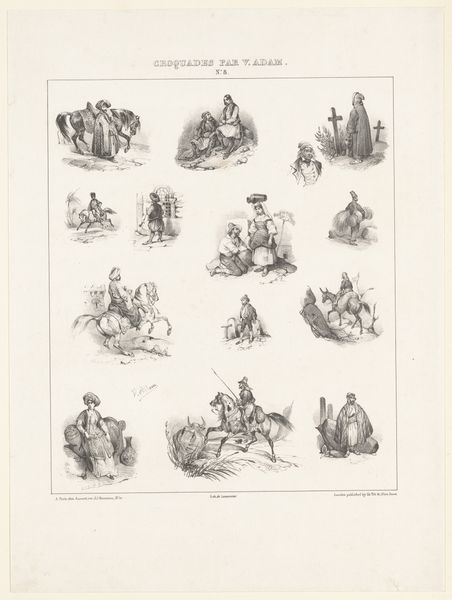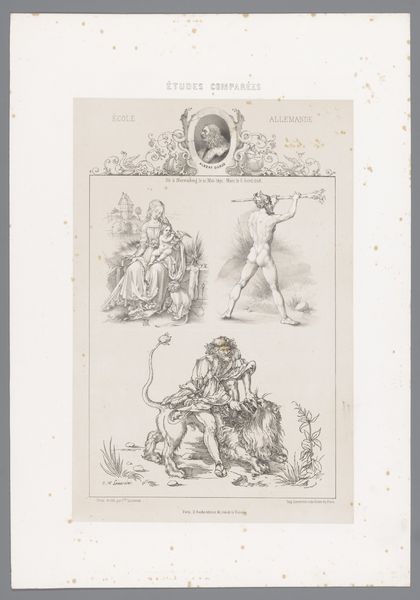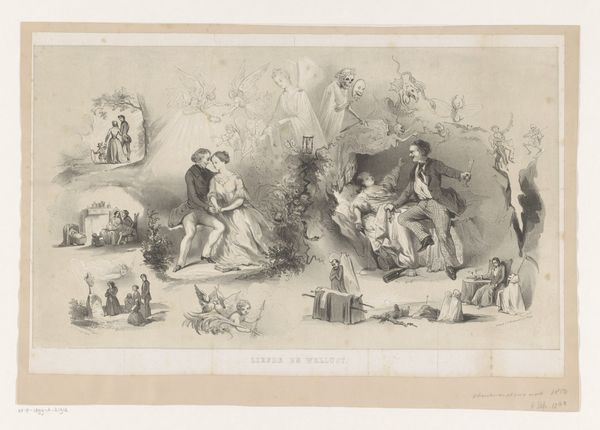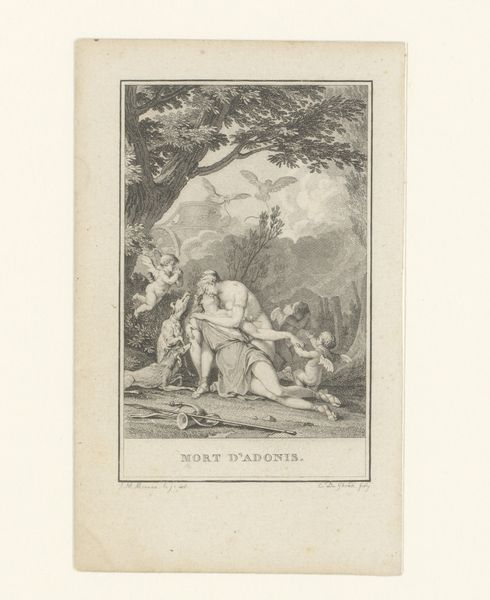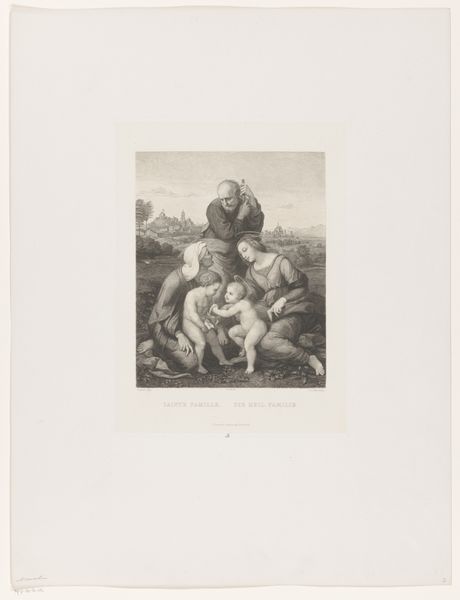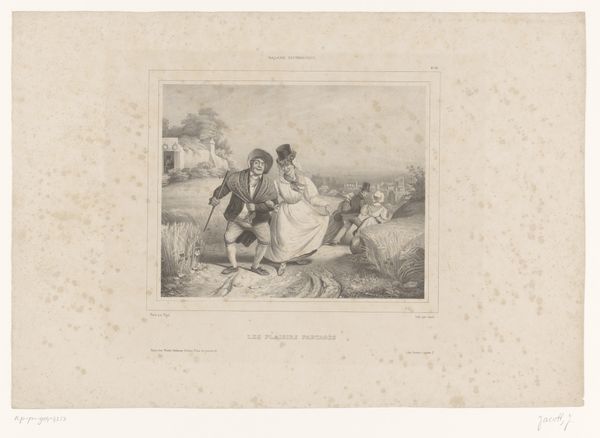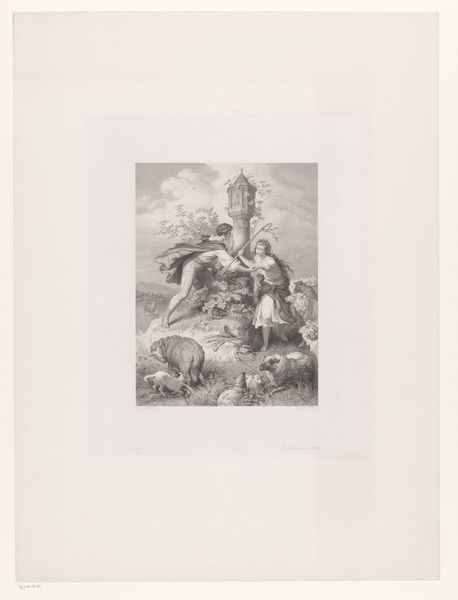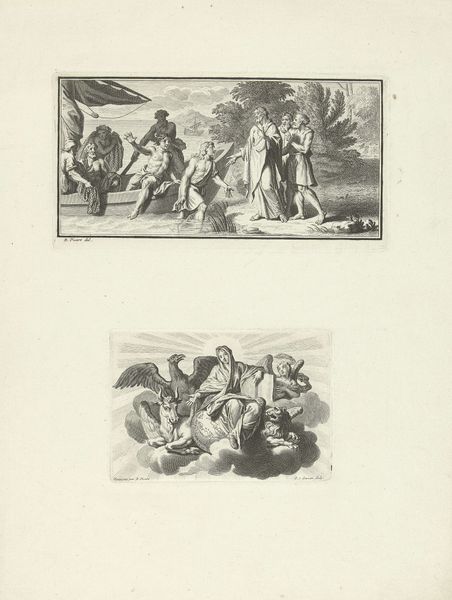
drawing, print, etching, graphite, pen, engraving
#
pencil drawn
#
drawing
#
narrative-art
# print
#
etching
#
pencil sketch
#
old engraving style
#
pencil drawing
#
graphite
#
pen
#
genre-painting
#
academic-art
#
engraving
Dimensions: height 495 mm, width 337 mm
Copyright: Rijks Museum: Open Domain
Alexander Ver Huell created this lithograph, titled "Kind en vrouw vliegen man om zijn nek," which translates to "Child and woman leap on man's neck", sometime in the 19th century. Lithography is a printmaking process that relies on the chemical repulsion of oil and water. The process begins with a smooth stone or metal plate. The artist draws an image on the surface with a greasy crayon or ink, which is then treated with a chemical etch. When the surface is subsequently dampened, the water adheres to the non-greased areas, while the oily ink is repelled. Ink is then applied, sticking only to the drawn image. Finally, the image is transferred to paper using a press. Considering the various scenes illustrated, from domestic images to biblical allegories, it is likely this print would have been reproduced in a periodical. Lithography allowed for the relatively quick reproduction of images, playing a crucial role in the rise of mass media. The technique democratized image production, enabling broader access to visual narratives and knowledge.
Comments
No comments
Be the first to comment and join the conversation on the ultimate creative platform.
